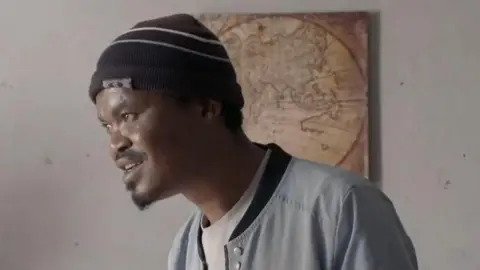Johannesburg's City Centre: A G20 Host in Distress
 BBC
BBCAs global leaders prepare to convene in Johannesburg for the illustrious G20 summit, the city’s reality starkly contrasts the polished venue awaiting them. Nearby, the city centre struggles under the weight of neglect, crime, and severe infrastructural decline.
Within a few kilometers of the summit site, numerous derelict buildings present a grim picture of urban decay, where authorities have identified over 100 such structures, many taken over by criminal elements.
Nelson Khetani, a resident of the MBV1 building in Joubert Park, described a neighborhood rife with criminality: There's guns, there's drugs, there's prostitutes, there's everything here. The lack of maintenance has rendered communal areas inoperative, with kitchens stripped bare and human waste visible throughout the premises.
Incidents of 'building hijacking,' where criminals take control of properties to profit from illegal rents, have become common. Khetani explained that many rooms have been seized by these groups, reflecting the dire conditions that residents must navigate.
President Cyril Ramaphosa’s admission of the city’s shortcomings echoes the sentiment of residents who have witnessed the deterioration over the years. With the city deemed filthy and disorderly, Mayor Dada Morero has claimed that Johannesburg is prepared to host the international summit; however, tangible change appears limited.
Past tragedies, such as a devastating fire that claimed 76 lives, should have catalyzed action, yet minimal progress has been observed, leaving residents in buildings like Vannin Court devoid of basic necessities, relying on makeshift heating solutions.
As Johannesburg grapples with these profound challenges, the stakes are high. The city’s reputation on the world stage hangs in the balance, alongside the wellbeing of its citizens who require basic safety and dignity.




















